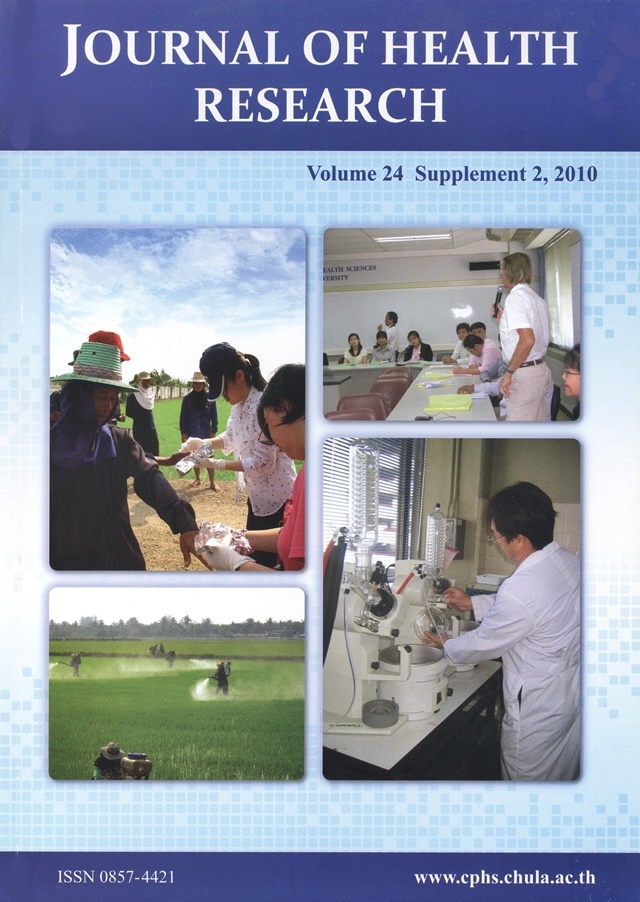Factors Influnencing the Practice of Household Waste Management among Myanmar Migrants in Muang District, Ranong Province, Thailand
Keywords:
household waste, practice of household waste management, Myanmar migrants, Muang district, ThailandAbstract
This study was cross sectional study and was collected in Muang District, Ranong Province, Southern Thailand. Four hundred Myanmar migrants of age range 18-65 years were asked by using self administered structured questionnaire. The objectives of the study are 1). to assess the level of knowledge and attitude towards household waste management and 2). to identify the factors influencing practice of household waste management among Myanmar migrants in the studied area. Most of the respondents 63.2% had high level of knowledge and 61.2% of the respondents had moderate attitude level. Only 16.5% had good practice towards household waste management. In terms of accessibility, 92.5% of the respondents got the information about household waste management from the sources of Thai government and INGOs. Around 90% had public trash bins near their house, 95.8% had household collecting system in their community and 98.2% had scrap buyers in their community. The factors influencing practice of household waste management were age, sex, occupation, educational level, migrant status, family size, monthly family income, duration of staying at current household, knowledge and attitude towards household waste management, availability of household waste management information and availability of scrap buyer. Among predisposing factors, there were significant differences between age, sex, occupation, duration of staying in recent household, migrant status, monthly family income, knowledge and attitude at P-value 0.001, educational level at P-value 0.024, family size at P-value 0.016 and practice towards household waste management. Regarding the enabling factors, there was highly significant difference between availability of household waste information and practice towards household waste management at P-value 0.001. Likewise, there was significant difference between availability of scrap buyers and practice towards household waste management at P-value 0.038 for reinforcing factors.Downloads
Published
2018-11-24
How to Cite
Naing, Y. H., & Somrongthong, R. (2018). Factors Influnencing the Practice of Household Waste Management among Myanmar Migrants in Muang District, Ranong Province, Thailand. Journal of Health Research, 24(Suppl. 2), 65–70. retrieved from https://he01.tci-thaijo.org/index.php/jhealthres/article/view/157140
Issue
Section
ORIGINAL RESEARCH ARTICLE







